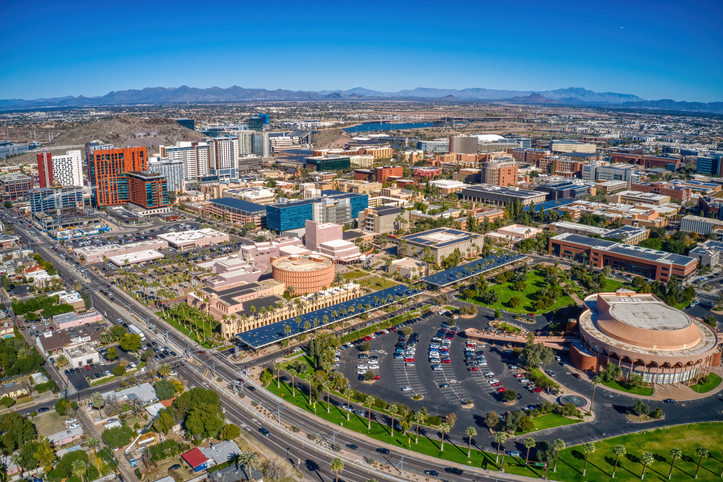APS suggests that people clean or replace air filters, get a “heat pump” or air conditioner repaired
(The Center Square) – With tens-of-thousands of new residents coming to Arizona every year from states without such blistering heat, the state’s largest utility wants to keep them from being blindsided by high summer electric bills.
APS spokesperson Katie Conner told The Center Square that an influx of new customers with the years of population increases means there’s a necessity for greater awareness of heat risks.
“Arizona is one of the fastest-growing states in the country, and that means new customers are moving into the areas we serve. Some may not have experienced Arizona’s extreme summer heat or be aware that air conditioners are often the largest consumers of electricity in a home, so it’s important for us to provide ways for customers to use energy more efficiently and save money on monthly bills while keeping cool and comfortable,” Conner said.
APS is the energy provider for 1.3 million residents, as they cover much of the rapidly growing Phoenix Metropolitan Area, according to their website. The Phoenix Metropolitan Area is one of the fastest growing in the country. According to U.S. Census data, Maricopa County has been at or near the top of the 50 most-populous counties in terms of population growth for several years. Since the COVID-19 pandemic began, the county has added more than 130,000 people.
APS suggests that people clean or replace air filters, get a “heat pump” or air conditioner repaired, and use LED lightbulbs as some methods to reduce energy costs. In addition, APS recommends the use of fans, cold water for washing machines, and being mindful of kitchen appliance usage.
The electric service provider also said to be aware of “lower-cost off-peak hours and using less energy during the higher-cost on-peak hours,” which are Monday through Friday between 4 p.m. and 7 p.m., according to a news release.
The utility, as well as SRP, plan to raise customer rates either later this year or in 2024.
Originally published by The Center Square. Republished with permission.
For more from Budget & Tax News.
For more public policy from The Heartland Institute.
